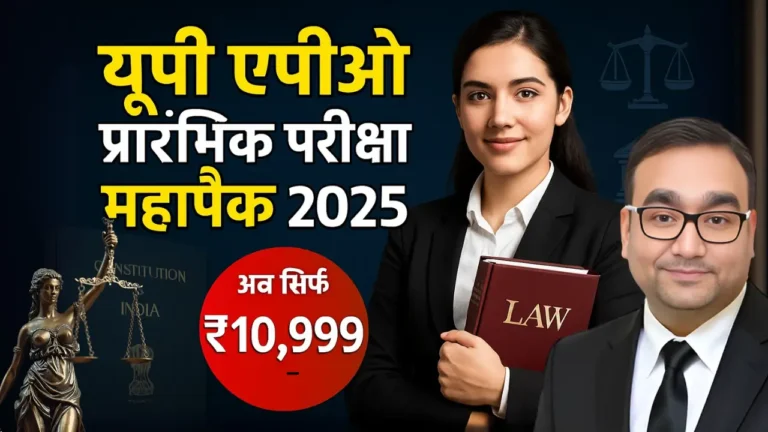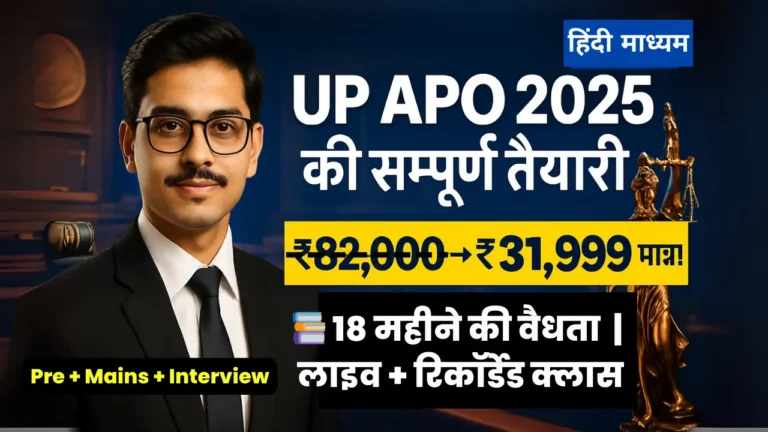What laws stop forcible conversions in India? Doon Law Mentor offers a simple guide for law students and lawyers, exploring the Bharatiya Nyaya Sanhita, 2023, state anti-conversion laws, and constitutional rights. Learn how India fights forcible conversions, with case studies and legal challenges.
Table of Contents
Introduction
Imagine someone being pressured or tricked into changing their religion against their will. This is called forcible conversions, and it’s a serious issue in India because it threatens people’s freedom to choose their faith. For fresh law students and new lawyers, understanding the laws against forcible conversions is key to protecting rights and promoting fairness. India’s diverse society, with Hindus, Muslims, Christians, and others, makes this topic complex and important. This article, created by Doon Law Mentor, explains the laws against forcible conversions in India We’ll cover the Bharatiya Nyaya Sanhita, 2023 (BNS), Bharatiya Sakshya Adhiniyam, 2023 (BSA), state anti-conversion laws, constitutional rights, real-life cases, and challenges, helping you excel in your legal studies or practice.
What Are Forcible Conversions?
Definition and Context
Forcible conversions happen when someone is forced, tricked, or lured into changing their religion using threats, lies, or promises like money or jobs. In India, forcible conversions are a crime because they violate a person’s right to choose their faith freely. The Indian Constitution, under Article 25, guarantees everyone the right to practice and spread their religion, but only if it’s done willingly, not by force or fraud.
Forcible conversions can involve:
- Threatening someone with harm or social exclusion.
- Offering money, food, or marriage to change religions.
- Lying about a religion to trick someone into converting.
- Targeting vulnerable groups, like poor or tribal communities.
Why Are Forcible Conversions a Problem?
Forcible conversions disrupt India’s diverse society, where 79.8% are Hindus, 14.2% Muslims, and the rest Christians, Sikhs, Buddhists, and others (2011 Census). They can cause fights between communities, hurt feelings, and even affect national security, as the Supreme Court noted in 2022. Some groups claim forcible conversions are used to change India’s religious balance, while others say these laws unfairly target minorities like Christians or Muslims. This makes the issue tricky for lawyers to navigate.
read More: Election Commission of India: An In-Depth Legal Guide for Law Students
History of Forcible Conversions in India
Forcible conversions aren’t new. Before India’s independence in 1947, princely states like Raigarh (1936) and Patna (1942) made laws to stop conversions to Christianity. After independence, states like Odisha (1967) and Madhya Pradesh (1968) passed “Freedom of Religion” laws to prevent forcible conversions. Today, 12 states have such laws, but there’s no national law because law and order is a state matter under the Constitution.
Legal Framework Against Forcible Conversions in India
India fights forcible conversions using the Bharatiya Nyaya Sanhita, 2023 (BNS), state anti-conversion laws, and other rules. The Bharatiya Sakshya Adhiniyam, 2023 (BSA) helps courts use evidence like complaints or videos. Let’s break down the laws in simple terms.
1. Bharatiya Nyaya Sanhita, 2023 (BNS)
The BNS, effective July 1, 2024, replaced the Indian Penal Code, 1860, and includes rules that can apply to forcible conversions. While it doesn’t name forcible conversions directly, these sections are relevant:
Section 351(2): Criminal Intimidation
- What It Says: Threatening someone to harm their body, reputation, or property to make them do something they don’t want is a crime. Punishment is up to 2 years in jail, a fine, or both.
- How It Applies to Forcible Conversions: If someone threatens a person to change their religion (e.g., “Convert or I’ll hurt you”), it’s criminal intimidation. For example, in 2017, Jharkhand police used a similar rule to charge preachers for threatening locals to convert.
- Why It Matters: This law protects people from scary threats in forcible conversions. Lawyers need proof of the threat, like messages or witness statements.
Section 308: Extortion
- What It Says: Scaring someone to give money or something valuable is a crime, with up to 7 years in jail, a fine, or both.
- How It Applies to Forcible Conversions: If someone demands money or forces a conversion by threatening to expose secrets, it’s extortion. In 2021, Uttar Pradesh cases involved threats to convert for marriage, charged under a similar rule.
- Why It Matters: This stops forcible conversions tied to blackmail. Lawyers must show evidence of the threat, often using BSA rules.
Section 318: Cheating
- What It Says: Tricking someone into giving money or something important by lying is a crime, with up to 7 years in jail, a fine, or both.
- How It Applies to Forcible Conversions: If someone lies about a religion (e.g., promising fake benefits) to make someone convert, it’s cheating. In 2023, Gujarat police charged people for luring conversions with money.
- Why It Matters: This law catches liars in forcible conversions. Students, think of it like someone promising you a gift to join a club, then taking your money—that’s cheating!
Section 61: Criminal Conspiracy
- What It Says: Planning a crime with others is punishable like doing the crime itself.
- How It Applies to Forcible Conversions: If a group plans forcible conversions, like organized missionary scams, they can be charged. In 2017, Madhya Pradesh arrested a group for planning conversions, using a similar rule.
- Why It Matters: This law targets forcible conversions by teams, needing proof of their plan, like emails or calls.
read More: Can the Words Socialist and Secular Ever Be Removed from the Indian Constitution
2. State Anti-Conversion Laws
Since law and order is a state subject, 12 states have “Freedom of Religion” laws to stop forcible conversions as of July 2025. These include Odisha (1967), Madhya Pradesh (1968), Arunachal Pradesh (1978, not enforced), Chhattisgarh (2000, 2006), Gujarat (2003), Himachal Pradesh (2006, 2019), Jharkhand (2017), Uttarakhand (2018), Uttar Pradesh (2020), Karnataka (2022), and Haryana (2022). Key features are:
- Prohibition: Ban conversions by force, fraud, or inducement (e.g., money, marriage).
- Punishment: 1–7 years in jail and fines of ₹5,000–₹50,000, harsher for minors, women, or SC/ST groups.
- Permission: Some states (e.g., Uttar Pradesh) require government approval before converting.
- Marriage Rules: Laws like Uttar Pradesh’s (2020) void marriages done only for conversion, targeting “love jihad” claims.
For example, the Uttar Pradesh Prohibition of Unlawful Conversion of Religion Act, 2020, amended in 2024, allows anyone to file complaints and has penalties up to 10 years or life for mass forcible conversions (,). In contrast, Tamil Nadu’s 2002 law was repealed in 2006 after protests.
3. Bharatiya Sakshya Adhiniyam, 2023 (BSA)
The BSA, effective July 1, 2024, replaced the Indian Evidence Act, 1872, and helps prove forcible conversions in court using evidence like texts or videos.
Section 61: Proof of Electronic Records
- What It Says: Digital evidence, like messages, can be used in court without showing the original, if it’s real and untampered.
- How It Applies to Forcible Conversions: Chats or videos showing threats in forcible conversions can be evidence. In 2021, Uttar Pradesh used WhatsApp messages to prove a conversion scam.
- Why It Matters: This makes digital proof easier to use. Students, it’s like showing a teacher a text to prove someone bullied you.
Section 63: Admissibility of Electronic Records
- What It Says: Digital evidence needs a certificate to prove it’s genuine to be used in court.
- How It Applies to Forcible Conversions: Courts use certified chats or recordings to punish forcible conversions. In 2017, Jharkhand used videos as evidence under a similar rule.
- Why It Matters: Lawyers must get this certificate right, or the evidence won’t count.
4. Constitutional Provisions
The Indian Constitution balances religious freedom with stopping forcible conversions:
- Article 25: Guarantees freedom to practice, profess, and spread religion, but only if it doesn’t harm public order, morality, or health. The Supreme Court in Rev. Stanislaus v. State of Madhya Pradesh (1977) said there’s no right to force conversions.
- Article 14: Ensures equality before the law, but critics say anti-conversion laws may unfairly target minorities.
- Article 21: Protects life and liberty, including the right to choose religion freely, as in Shafin Jahan v. Asokan K.M. (2018).
5. Other Relevant Laws
- Indian Penal Code (IPC) Sections: Before BNS, sections like 295A (hurting religious feelings) and 298 (insulting religion) applied to forcible conversions. These are now under BNS equivalents.
- Digital Personal Data Protection Act, 2023 (DPDPA): Protects personal data in forcible conversions cases, with fines up to ₹250 crore for misuse.
Judicial Precedents and Case Studies
Case Study 1: Rev. Stanislaus v. State of Madhya Pradesh (1977)
- What Happened: A priest challenged Odisha and Madhya Pradesh anti-conversion laws, saying they violated religious freedom.
- Court Decision: The Supreme Court upheld the laws, saying forcible conversions disrupt public order and aren’t protected under Article 25.
- Lesson: Courts support laws against forcible conversions, but not voluntary ones.
Case Study 2: Shafin Jahan v. Asokan K.M. (2018)
- What Happened: A Muslim man’s marriage to a Hindu woman was called “love jihad” and annulled, claiming forced conversion.
- Court Decision: The Supreme Court restored the marriage, saying adults can choose their religion and partner under Article 21.
- Lesson: Forcible conversions are illegal, but free choice is protected.
Case Study 3: Uttar Pradesh Conversion Cases (2021–2023)
- What Happened: Uttar Pradesh reported 427 forcible conversions cases, many tied to marriage scams.
- Court Decision: Many were charged under the 2020 anti-conversion law and BNS equivalents, using digital evidence (BSA Section 63).
- Lesson: State laws and digital proof are key to fighting forcible conversions.
Case Study 4: Jharkhand Arrests (2017)
- What Happened: Sixteen preachers were arrested for allegedly forcing tribal locals to convert to Christianity.
- Court Decision: Charged under Jharkhand’s 2017 anti-conversion law and IPC (now BNS Section 351(2)), with video evidence.
- Lesson: Anti-conversion laws target forcible conversions, but need clear proof.
Comparative Analysis: Global Approaches
- United States: No specific anti-conversion laws, but coercion is punished under general laws. India’s state laws are stricter.
- Nepal: The 2015 Constitution bans forcible conversions, similar to India, but includes jail terms up to 5 years.
- Algeria: A 2006 law bans converting Muslims, with 5 years in jail, unlike India’s focus on all religions.
Challenges in Fighting Forcible Conversions
- Misuse of Laws: Critics say anti-conversion laws target minorities, like Christians in Jharkhand (2017).
- Proof Problems: BSA Section 63 needs certified digital evidence, which is hard to get.
- Victim Silence: Fear of stigma stops victims from reporting forcible conversions.
- No National Law: States have different rules, causing confusion.
- Balancing Rights: Protecting freedom (Article 25) while stopping forcible conversions is tricky, as seen in Shafin Jahan (2018).
Implications for Lawyers and Law Students
Forcible conversions offer big opportunities:
- Learn BNS: Master Sections 351(2), 308, 318, and 61 for court cases.
- Use BSA: Know Sections 61 and 63 to present digital evidence.
- Defend Rights: Protect victims’ freedom under Article 25 and 21.
- Fight Misuse: Challenge unfair use of anti-conversion laws against minorities.
- Push for Laws: Suggest a clear national law to stop forcible conversions.
Table: Key Laws Against Forcible Conversions
| Law | Key Rules | How It Stops Forcible Conversions |
|---|---|---|
| BNS, 2023 | Sections 351(2), 308, 318, 61 | Punishes threats, blackmail, cheating, and group plans |
| State Laws | Odisha, UP, etc. | Ban force, fraud, or lures; require permission |
| BSA, 2023 | Sections 61, 63 | Allows digital evidence like chats or videos |
| Constitution | Articles 14, 21, 25 | Protects free choice, bans forced acts |
This table, by Doon Law Mentor, sums up the legal tools.
Conclusion: Winning Against Forcible Conversions
India’s laws, like BNS Sections 351(2), 308, 318, state anti-conversion acts, and BSA Sections 61, 63, work to stop forcible conversions while protecting religious freedom. Cases show courts are serious, but challenges like misuse and proof issues remain. For law students and lawyers, mastering these laws means you can protect people and make India fairer. Visit Doon Law Mentor at doonlawmentor.com to learn more and grow your legal skills!
FAQs
What laws stop forcible conversions in India?
BNS Sections 351(2), 308, 318, 61, state anti-conversion laws, and BSA Sections 61, 63 punish forcible conversions.
Why are forcible conversions a crime?
They violate free choice, cause fights, and may harm national security.
How does BNS Section 351(2) help?
It punishes threats to force someone to change religion.
What does BSA Section 63 do?
It lets courts use certified digital evidence in forcible conversions cases.
Why is fighting forcible conversions hard?
Misuse of laws, proof issues, and victim fear make it tough.
#ForcibleConversions #IndianLaw #AntiConversion #DoonLawMentor






